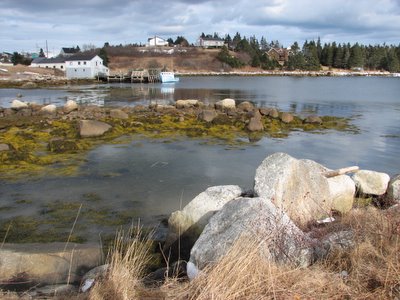10-15 p. double-spaced; use in-text referencing
If you have any questions or concerns about writing and formatting the research paper, go to the Writing Centre (in the Burke Building) or the Library for a style guide and some tips on organizing your content. You should have a good set of academic and general references and have read through and organized the content, looking for material to organize into the introduction and main body of the paper. Think about finding areas of consensus in the research as well as gaps in the research. The purpose of a research paper is often to find out what the literature agrees upon and what gaps in the knowledge remain.
In general, your paper should include most of the following. Depending on your particular topic, some of this may or may not be relevant.
1. WHERE: Overview and introduction: Spatial setting: where it is.
2. WHAT: Are the research methodologies being used and undertaken to study the topic.
3. WHY: Are these research projects being undertaken and why is the research important and useful.
4. RESULTS: What are the gaps in the research and what are the areas of consensus? What are the big research questions that remain related to your topic?
5. CONCLUSIONS: what are the major findings related to your topic? What are the most unique or surprising findings?
If you have any questions or concerns about writing and formatting the research paper, go to the Writing Centre (in the Burke Building) or the Library for a style guide and some tips on organizing your content. You should have a good set of academic and general references and have read through and organized the content, looking for material to organize into the introduction and main body of the paper. Think about finding areas of consensus in the research as well as gaps in the research. The purpose of a research paper is often to find out what the literature agrees upon and what gaps in the knowledge remain.
In general, your paper should include most of the following. Depending on your particular topic, some of this may or may not be relevant.
1. WHERE: Overview and introduction: Spatial setting: where it is.
2. WHAT: Are the research methodologies being used and undertaken to study the topic.
3. WHY: Are these research projects being undertaken and why is the research important and useful.
4. RESULTS: What are the gaps in the research and what are the areas of consensus? What are the big research questions that remain related to your topic?
5. CONCLUSIONS: what are the major findings related to your topic? What are the most unique or surprising findings?
Evidence of Ocean Circulation Changing around Antarctica
0 Comments Published by CBEMN on Friday, March 23, 2007 at 6:12 PM.
Classroom 3 (King's A&A Building, lower level), Ondaatje Hall (Marion McCain Arts and Social Sciences Building, 6135 University Avenue), 7:00 pm The School of Journalism at the University of King's College, in partnership with the Dalhousie Student Union, are proud to host renowned Canadian journalist and military historian Gwynne Dyer on Monday, March 5. He will present "The Climate Wars," a talk on global warming. Free and all are welcome.
Save the Wave! Read about it here.
(Thanks to Calem, who brought this to my attention on his blog).
(Thanks to Calem, who brought this to my attention on his blog).




